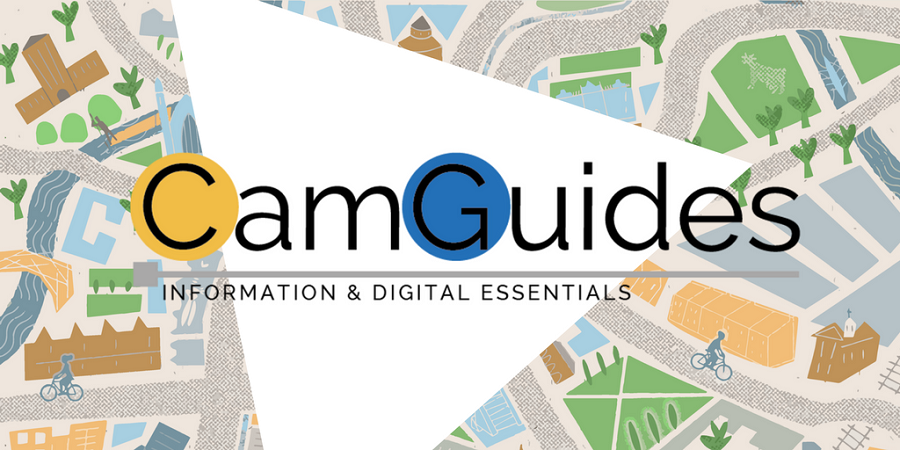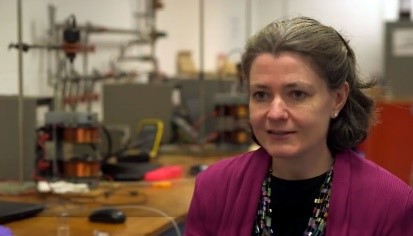Teaching Grants
Please note that this article was published in 2019 and contains out-of-date information;
the Teaching and Learning Innovation Fund is no longer running and the Technology-Enabled Learning Projects Programme has evolved into the Blended Learning Service
Support for the development of teaching is vital for the continued excellence of Cambridge’s educational experiences. Two key sources of project support are available to teaching staff: Teaching and Learning Innovation Fund (TLIF) grants are awarded to projects that align with Cambridge’s strategic priorities and have a positive impact on teaching and learning, while the recently launched Technology-Enabled Learning Programme (TELP) provides expert support in development, creation and delivery of new digital content for your courses.
Teaching and Learning Innovation Fund
TLIF was developed specifically to offer one-off grants to promote the educational enhancement activities of staff or students, especially where a relatively small sum can support a creative, innovative or strategic project. Grants are awarded on an annual basis, usually to between five and ten projects.
Projects proposals that engage with digital education are encouraged to apply for the TLIF, but any project with a focus on innovative approaches to enhancing education, regardless of whether it foregrounds educational technologies or online learning, is welcome to apply. Projects funded by the TLIF can be focused on a particular course, a collaborative effort across institutions, or even applicable to the wider University. Grant winners are supported by periodic networking events with peers, to reflect on and share their experiences during the course of the project.
One project part-funded by the TLIF, which launched last year, was CamGuides. This resource was developed by the Cambridge Information Literacy Network, and was designed to support new Master’s students with the transition into their degree by providing guidance on a variety of topics before their arrival in Cambridge, as well as during their time here. The topics covered range from wayfinding on campus and wellbeing through to academic practice and research skills.

The project was a response to observations that Master’s students are under immense pressure to hit the ground running when they arrive at Cambridge, with some taught programmes lasting for as little as nine months. Finding one’s way around the institution can be challenging, and contemporary academic practice and research skills may be unfamiliar, especially to those returning to Higher Education after time away. The team which created CamGuides, headed up by Helen Murphy and Elizabeth Tilley, was recently awarded the inaugural Technology-Enabled Learning Prize for Arts, Humanities & Social Sciences for their work on CamGuides helping newly-enrolled Master’s students to focus more of their time and energy on their studies.
The last round of grants were awarded to a diverse set of projects, ranging from a course redesign to better support the development of experimental design skills, to a new online module developed by a student-led team, addressing “Digital Hygiene” in the use of social media by Medical students. We look forward to seeing these develop over the current academic year.
Applications for the next round of TLIF grants are currently open on the CCTL website.
Technology-Enabled Learning Projects
Last year saw the launch of the Technology-Enabled Learning Programme (TELP), initially a pilot project developed as a collaboration between the University and the Cambridge University Press. The programme aims to provide dedicated resource to support the creation of new technology-enabled learning materials and the conversion of existing teaching content, whether as fully online or blended courses. Projects receive technical and pedagogical expertise and assistance.
The Programme is seeking to engage at a range of levels, from foundation level, through postgraduate studies, to professional development. The projects supported might already exist and simply be in need of a pedagogical or technological refresh, or might be entirely at the conceptual stage; enquiries are very much welcomed even for ideas which aren’t fully fleshed out, and indeed from those who might be unsure or sceptical of the utility. A range of projects successfully applied for the pilot, and these are currently under development this academic year.

One project from the pilot has already been executed and delivered: STEM Start, which featured in the first issue of our newsletter. This new online course was designed to help prepare new Natural Sciences and Engineering undergraduates before their arrival at Cambridge, both in terms of making sure students have the same base level of subject knowledge coming into the degree, and in terms of teaching them how to make the most of their learning opportunities – whether lectures, supervisions, practicals - so that they don’t have to waste time working these things out once they arrive.
The team is continuing to work on improving the STEM Start course for next year in response to student and expert feedback, and developing the course further than was possible within the initial tight turnaround of the project.
It is anticipated that a new round of applications for TELP projects 2020 will be opened shortly, for the upcoming academic year.
Other Sources of Support
Finally, in addition to the above, there are several grant schemes which may be of interest to staff or students looking to improve or enhance the broader educational experience offered by Cambridge, though the schemes are not specifically focused on teaching and learning.
The University Diversity Fund provides grants to support initiatives contributing to raising awareness of issues related to equality and diversity, challenge discrimination and inequalities, increase the representation of underrepresented groups, and facilitate implementation of good practice. Look out for information regarding the next round of application in 2020.
The University’s Widening Participation Project Fund, administered by the Cambridge Admissions Office, provides grants to support initiatives linked to increasing participation in higher education from disadvantaged or underrepresented groups. Applications are currently open: the deadline is Monday 3 February 2020, and enquiries should be directed to Rebecca.Richardson@admin.cam.ac.uk.
Cambridge Teaching & Learning Newsletter vol. 1 (issue 2) November 2019
